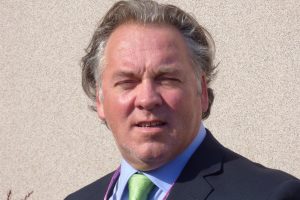Nurses are by far the largest group in the healthcare profession, accounting for approximately 59 percent of the workforce. Significantly improving their working conditions is the key to making health systems in Europe and around the world more resilient and better prepared for future challenges.
Text: Dietmar Schobel
What is needed to keep our health systems up and running? What do we need in order to make them more resilient and as prepared as possible for future challenges? All of the experts interviewed by Healthy Europe agree that this involves investment in the people who work in healthcare, including nurses, doctors, pharmacists, physiotherapists, psychologists, medico-technical professions and many other groups of health professionals, and improved working conditions.
Nurses are by far the largest of these groups of health professionals. According to the World Health Organization (WHO) “State of the world’s nursing” report, they make up approximately 59 percent of the healthcare workforce. The report states that there are considerable differences in the number of nurses relative to the populations: while in some countries there are fewer than 10 nurses per 10,000 inhabitants – as, for example, in many African countries – in others there are more than 100 – for example, in a number of Western and Northern European countries, the USA, Brazil, Chile, Australia and also Uzbekistan.
Nurses were also among the key workers who were applauded by many people during the initial months of the COVID-19 pandemic. Throughout a time of great uncertainty and fear, nurses continued with their work, day in and day out, in the service of their patients, despite the relatively high risk of contracting a previously unknown infectious disease. An analysis conducted in late 2020 by Germany’s Robert Koch Institute found that healthcare and nursing staff ran roughly twice the risk of falling ill when compared with the average population.
Facing similar challenges

“But applause alone is not enough,” says Howard Catton, who co-chaired the “State of the world’s nursing” report, qualified as a Registered Nurse in 1988 and has been Chief Executive Officer of the International Council of Nurses (ICN) since February 2019. The ICN is a federation of more than 130 national associations of nurses, representing over 27 million nurses worldwide. In fact, long before the COVID-19 pandemic, there was already a great need for action in terms of training, working conditions and the recognition of nurses.
Despite widely divergent health systems, European countries often face similar challenges. Staff shortages and concerns about how to meet the demand for nurses in the future are the biggest issues in most European countries. In an analysis of shortage and surplus occupations conducted for the year 2020 on behalf of the Directorate-General for Employment, Social Affairs and Inclusion of the European Union, nursing professionals topped the list of shortages – edging out plumbers, pipe fitters and cooks. Out of 31 countries – the 27 EU countries, the United Kingdom, Norway, Switzerland and Iceland, 18 reported a shortage of nursing professionals.
Many will leave the profession
Richer countries have partly been successful in alleviating staff shortages by relying on labour migration from poorer countries. But this is not a solution in the long run because it exacerbates the situation in developing countries. In the near future, it will presumably become even more urgent to find ways of addressing this problem: “The COVID-19 pandemic has put healthcare professionals under even greater pressure than before. We anticipate that many will leave their profession in the coming months because of this,” says Howard Catton.

Furthermore, the average age of nurses in many countries is relatively high, which means that a wave of retirements can already be expected over the coming years. “This in turn increases the burden on those who remain in the workplace, creating a vicious circle,” says Paul De Raeve, Secretary General of the European Federation of Nurses Associations, which represents 36 national associations of nurses, and thus 3 million people in total: “After all, we know that overwork due to staff shortages is the main reason why many nurses leave their profession.”
Improving working conditions
Hence, the first step is to improve working conditions by increasing the number of highly educated nurses and thus reducing the number of patients assigned to a single nurse. Retraining jobseekers from sectors particularly affected by the COVID-19 pandemic to become nursing assistants or nurses could help to achieve this. “But that is only true if our high EU training standards as described in Directive 2013/EU/55 are maintained, since nursing is a profession that requires numerous qualifications and a correspondingly long training period,” as Paul De Raeve points out. Approximately 90 percent of nurses in Europe are female. This makes it particularly important to introduce additional measures like childcare services at the workplace and work schedules that make it possible to reconcile work and family life.

Comprehensive workplace health promotion, which should also include a cooperative management style and overall improvements in working conditions, can also help to make workplaces healthier and more attractive. “Workplace health promotion means understanding the health of employees as a management objective and integrating this into organisational development strategies. In the health sector, the institutions that have joined the International Network of Health Promoting Hospitals and Health Services are demonstrating what this is all about in practice,” explains Karl Kuhn, President of the European Network for Workplace Health Promotion.
Paying appropriate wages
Last but not least, remuneration naturally plays an important role. “For nurses, this should be at least at the level of the average EU salary, and above, in any given EU country. However, this is currently not the case in many European countries, especially in Eastern and Southern Europe,” says Paul De Raeve. The EFN Secretary General therefore calls for the work of nurses to receive more recognition in future both at a national and European level, not only politically, but also financially: “This should not be seen as an expense, but as an investment in a more resilient future for European health systems.”
